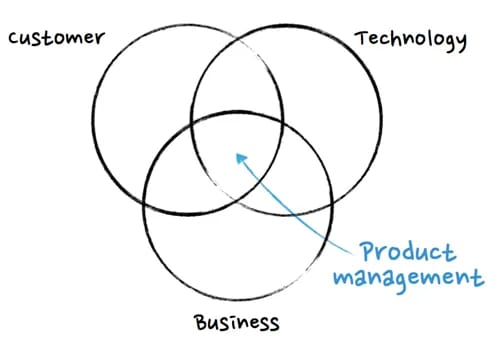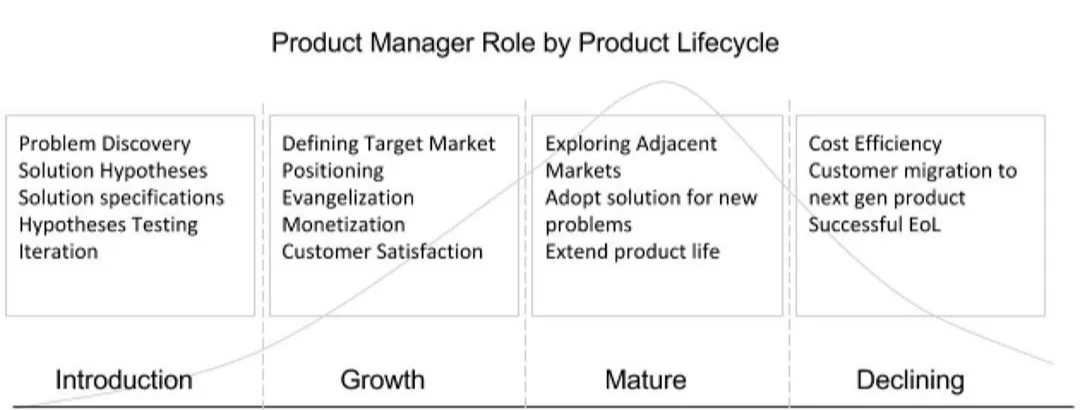- PM Tech House 🏠
- Posts
- A step-by-step guide to navigating the PM journey
A step-by-step guide to navigating the PM journey
Key insights and practical steps to land your first PM role
Product Management appears to be the latest trending term. Although it has been around for a little over a decade, it has recently started gaining significant attention.
Each month, I receive several messages on LinkedIn from enthusiastic undergraduates eager to enter a product role. Since I have a deep appreciation for these aspiring PMs, I always make an effort to engage with them.
Over time, I have noticed that many of their questions tend to be repetitive. This led me to the idea of writing a blog to address these frequently asked queries. These questions aren’t just relevant to undergraduates but to anyone looking to transition into a product role!
I often pose a question to aspiring PMs—Why do you want to become a product manager?
More often than not, I find them referring to the well-known Venn diagram where a PM sits at the intersection of technology, customers, and business. They enthusiastically imagine that PMs are like superheroes (or mini CEOs), wielding complete authority over vision, strategy, marketing, design, and product execution. In their perception, most of a PM’s time is spent leading teams, making key decisions, and developing groundbreaking products.

Learn AI in 5 minutes a day
This is the easiest way for a busy person wanting to learn AI in as little time as possible:
Sign up for The Rundown AI newsletter
They send you 5-minute email updates on the latest AI news and how to use it
You learn how to become 2x more productive by leveraging AI
This perception of a product manager can seem incredibly fascinating and even more enticing for an undergraduate searching for a fulfilling career—but I truly wish it were that simple!
PMs neither own nor have absolute control over mission, strategy, or design. Instead, they play a role in driving vision, strategy, design, and execution. I always remind aspiring PMs that as Associate Product Managers (APMs) in the early stages of their careers, their primary responsibility will be ensuring flawless execution while working within the vision and strategy established by leadership (CXOs, boards, etc.).
PMs don’t create groundbreaking, brand-new products from scratch every day. If that excites you, then trust me—you should consider becoming an entrepreneur. From my observations, most startups hire their first PM only after they have achieved product-market fit (when their product has stabilized and gained a solid user base). In reality, founders serve as the first product managers of a startup. As a PM, much of your time will be spent making incremental improvements to a small feature, enhancing a set of features, or occasionally developing a new feature from the ground up.
Historically, we seem to be captivated by the idea of managing people, and young undergraduates are no exception. Unfortunately, PMs don’t have direct reports—at least not until they reach the level of senior product manager or product lead. This realization often comes as a major disappointment to many aspiring PMs.
Here, I have compiled the top five questions frequently asked by those looking to break into product management.
Should I know to code to be a PM?
This question is a bit tricky. Kunal Shah, the founder of CRED, has a unique perspective—he believes the only criterion for hiring PMs is their ability to "capture the applause of an audience." Following this philosophy, CRED has recruited many PMs from performance art backgrounds.
However, the reality is that hiring preferences vary across organizations. A company’s product culture may be driven by design, data, or technology, influencing what they seek in a PM. It’s crucial to assess your strengths and align them with a company’s product culture when applying for a role.
Personally, I strongly believe that a PM should have a solid understanding of how code and technology function. To be clear, this means grasping the fundamentals of coding and technology—not necessarily possessing the technical skills to write code.
A PM should have an understanding of system like —
What is an API? How does API works?
What is cloud? How servers work?
How large scale system that caters to millions of users works? (System design)? What is load balancing? What is horizontal & vertical scaling?
HTML, CSS & Javascript
Familiarity with tools like Google analytics, Postman & Google developer tools.
RDBMS & No SQL databases
Analytical rigor is a crucial prerequisite for a PM. Data serves as a PM’s most reliable ally, making a strong grasp of SQL (including concepts like cross queries and nested queries) and proficiency in spreadsheet tools like Google Sheets or MS Excel essential.
I highly encourage aspiring PMs to practice SQL using SQLZoo rather than relying solely on theoretical learning from W3Schools.
What does a product manager do?
The role of a product manager varies based on the organization, its structure, and the current phase of the product.
There are different types of product managers, such as Growth PMs (focused on driving growth), Technical PMs (similar to Engineering Managers), and AI Product Managers, among others. Additionally, a PM’s responsibilities can differ significantly between B2B and B2C companies.

To sum up,
A product manager (PM) identifies customer needs and pain points, working towards effective solutions.
A PM prioritizes which issues should be addressed immediately and which can be resolved later.
A PM determines the best approach to solving these challenges and documents the details, outlining what needs to be done and how different stakeholders will contribute.
A PM collaborates with various teams, including sales, operations, design, and technology, to successfully launch a feature or product.
A great PM is obsessed to solve customer pain points and delight them with a product that is easy to use, and makes a considerable impact in their lives.
How should I start preparing for PM interviews?
Preparing for a PM interview involves three key steps: awareness, practice, and guidance. While there isn’t a fixed approach, taking the first step is crucial. Most candidates eventually discover their own style and path once they begin the journey.
Awareness: A great way to start is by reading Decode & Conquer, an excellent book that provides insights into PM roles and interview processes. Don’t just read it once—go through it twice to fully grasp what to expect.
Drill: As a wise saying goes, “Every practice is a learning experience.” A useful platform for honing your PM interview skills is Product Management Exercises, where you can work on real PM interview questions and develop the right product-thinking mindset.
Remember! Nothing compares to hands-on experience in product development. Consider doing an internship or working on a project that addresses real-world customer problems. You can explore exciting product internships on platforms like Internshala.
What skill-set should I possess to be a PM? Can you suggest me some resources/books?
There are four core skills that a product manager should possess:-
Sense of design (UI/UX)
Technical & analytical skills
Soft skills
Ability to understand customer need
I have already covered the technical and analytical skills above. In addition to these, PMs should develop a strong design sense. While this skill primarily comes from hands-on experience in designing products, I recommend taking the UI/UX design free course on Coursera to gain foundational knowledge in UI/UX principles, information architecture, and wireframing.
Understanding customer needs and honing soft skills are aspects that can only be truly developed through real-world product-building experiences. These skills evolve naturally over time, so they should not be a major concern in the early stages.
I highly encourage aspiring PMs to read and write frequently, as a great product manager should be a thought leader. Personally, I prefer reading books, but I keep my recommendations minimal. If reading books isn’t your thing, you can always watch their summaries on YouTube and take notes. (Make sure to take notes!)
Design
Analytics
Process
Psychology
Is MBA mandatory to be a PM? Can I be a PM if I am not from a premier college?
While some companies may prefer candidates with an MBA or a degree from a top-tier institution, many others have no such strict requirements. Focus on what’s within your control rather than worrying about things that aren’t.
The product industry is filled with inspiring examples of individuals from diverse backgrounds—operations, technology, marketing, and even psychology—who have successfully transitioned into product roles and achieved remarkable milestones.
Note: Remember: Product Managers are, in a way, products themselves. As an aspiring PM, establish your digital presence—read, write, and engage in discussions. And most importantly, never hesitate to ask questions, no matter how trivial they may seem!

